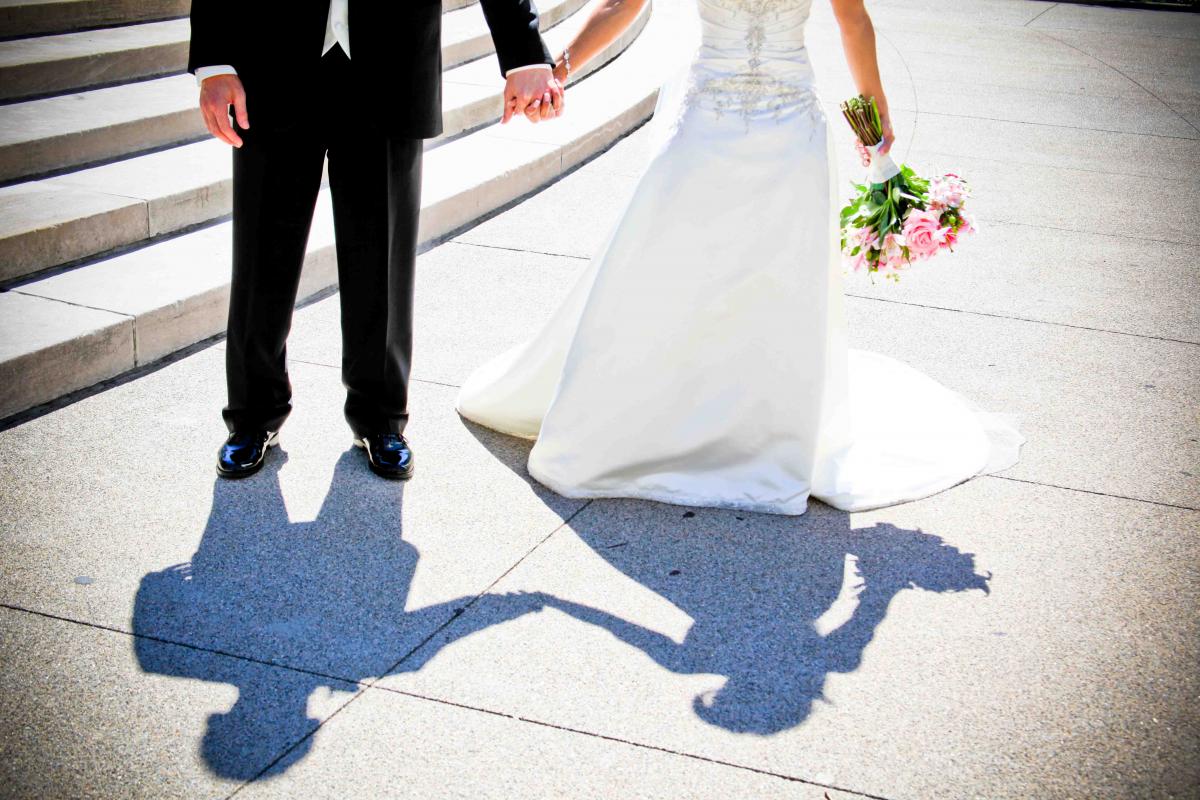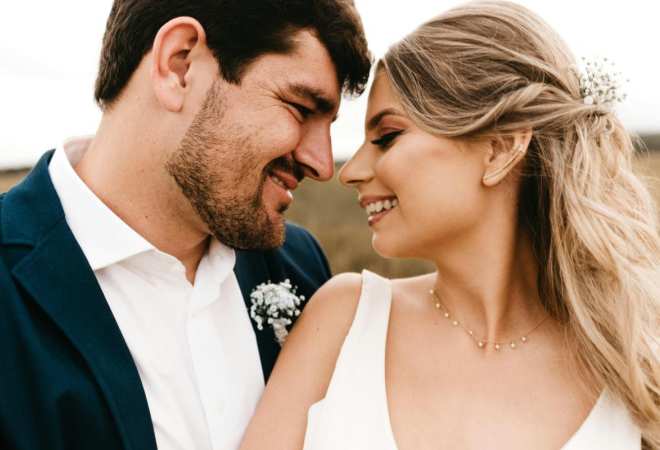Thirty-thousand dollars. That's what the AVERAGE cost of weddings are today, according to The Knot. What can you buy with $30,000? Well, I'll tell you. That's a brand new car. A down payment on a house. Two years of college. Somewhere around 10 trips to Europe. And most importantly, approximately 7,500 Iced Skinny Mochas from Starbucks.
You can do a lot with thirty grand. Perhaps that's why we tend to freak out, so-to-speak, about the idea of spending that amount of money on one day in the course of our lifetime. Of course we don't have to spend that amount, but when we're told that it's the average, it's hard not to feel the pressure.
As you are finally revealing all of the contents of your secret wedding Pinterest board to your significant other, at some point, the dreaded question rears its ugly head: who's paying for all of this stuff?
"Who pays for the wedding" is one of the most frequently Google-searched phrases in terms of wedding planning. Tradition typically delivered the majority of wedding costs on to the bride and her family. Historically, women were considered "personal property" and the woman's family was required to pay the groom's family a dowry because they were assuming responsibility for the bride. That right there should explain to you why it's OKAY to deviate from tradition. Women, of course, are not viewed as personal property and I don't know what kind of bride you are, but I highly doubt you agree that your family should have to pay someone to take you off their hands.
The truth is, regardless of tradition, determining who pays for the wedding is a matter of who is able and who is willing. It can be a good idea to get a sense of the comfort level amongst your significant other and other potential contributors like your family before you even become engaged. Emotions can run a little higher in the midst of wedding planning, so it doesn't hurt to have casual conversations about it prior to the engagement. That way, you launch the wedding planning with a general understanding of the contributions coming your way.
Tradition says the bride pays for her dress, the venue, ceremony, reception, etc. and pretty much everything else. The groom's family takes care of the groom's attire, rehearsal dinner, the officiant's fee and the wedding certificate fee. It seems like a rather unbalanced split, doesn't it? Just because that's how things have been, doesn't mean that's how things have to be. These days, couples get married later in life and tend to be more financially stable. If you feel you and your significant other can take on the financial responsibility yourselves, you are more likely to have the advantage of not having to adhere to the requests from other investors.








Join the conversation
Log in or register to post comments